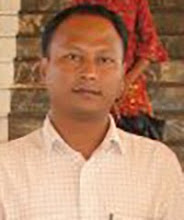The Secession of Kokang
GOVERNMENT OF BURMA
FRONTIER AREAS ADMINISTRATION
RANGOON.
Dated the 25th August 1947.
Memorandum for the Executive Council
Subject: - Kokang State.
Hon’ble Ministers are probably aware that the question of Kokang has been figuring prominently since the return of the British forces. The origin of this State is obscure but from the information received from the Sawbwagyi of North Hsenwi of which for the present Kokang State forms a sub-state, Chinese levies who took part in the siege of Ayudhiya did not return to China but sought permission to take up their resident in Kokang. This sub-state border onto China and the population is 90 percent Chinese.
In the past it probably accepted direct administration from North Hsenwi but for some time past the State has been more or less staying aloof although it regularly submitted its contribution towards revenue collection to North Hsenwi.
It appears however that for some time past Kokang had not made it possible for administrators of North Hsenwi State to enter the territory and up to very recent times British Assistant Superintendents were specifically told not to enter Kokang.
In 1942 with the Japanese invasion the people of Kokang took up resistance and harassed the Japanese. At that stage the present Sawbwagyi of North Hsenwi was told by the Japanese to stay out, on the ground that he had been an officer in the British Army and it appears that a brother of his, Sao Yape Hpa, was put in by the Japanese as Administrator of the State. Throughout the Japanese occupation North Hsenwi was not considered part of the Federated Shan States and was administrated directly by the Japanese Army.
In 1943 with Sao Yape Hpa the Japanese took out an expeditionary force and entered Kokang with the result that the Myosa of Kokang and his family had to run away to China where they were made much of by the Chinese and by Marshal Chiang Kai-shek. From China they were flown into India and apparently extracted promises from the British authorities.
With the liberation the Sawbwagyi of North Hsenwi was called in by Major-General Pearce and was told that he would have to give up Kokang. He was ordered not to make representations either to Government or to Lord Louis Mountbatten.
The Burma Military Administration treated Kokang as a separate State and this position has prevailed up to the present date although legally the secession was not effected.
In giving evidence before the Frontier Areas Committee of Enquiry, Yang Chi Sai, son of the Kokang Myosa, made it clear that he wanted to be free from North Hsenwi but the unanimous report regarding this particular question was that Kokang should remain a sub-state of North Hsenwi. As a result of this decision the position between Kokang and North Hsenwi became rather strained and with a view to settling the matter, a meeting was arranged between the Sawbwagyi of North hsenwi and Yang Kyi Sai. They had preliminary talks among themselves and at the meeting before me a full discussion took place and I append below a memorandum recorded at the meeting. The position in short is that the Sawbwagyi of North hsenwi taking into account all the facts prevailing in this case has agreed that Kokang should form a separate state, the only condition being that the Kunlong ferry be maintained by the Kokang State and that it should be auctioned in the presence of officials from both North Hsenwi and Kokang. The profits of the ferry will be shared equally by the two states.
Point for decision.Should Kokang be permitted to form a State separate from North Hsenwi and to be an individual state in the Shan State(s)?
Recommendations:-
Everybody who knows the Shan States feel that a dissatisfied Kokang would indeed be a very vulnerable spot along the Chinese Border. As pointed out 90 percent are Chinese and what they really want is not amalgamation with China but to remain in the Shan States Federation as a unit independent from North Hsenwi.
I have consulted various people who know the situation and also my brother chiefs and the unanimous opinion is that recognition be accorded to Kokang as a separate state within the Shan States Federation.
With the exception of Mongpai whose position has not yet been clarified I can think of no other territory which can have similar claims for secession from a State. Kokang’s position is unique in that the people are not Shans but Chinese.
| (Sao Hkun Hkio) Hon’ble Counsellor, Frontier Areas Administration. |








|